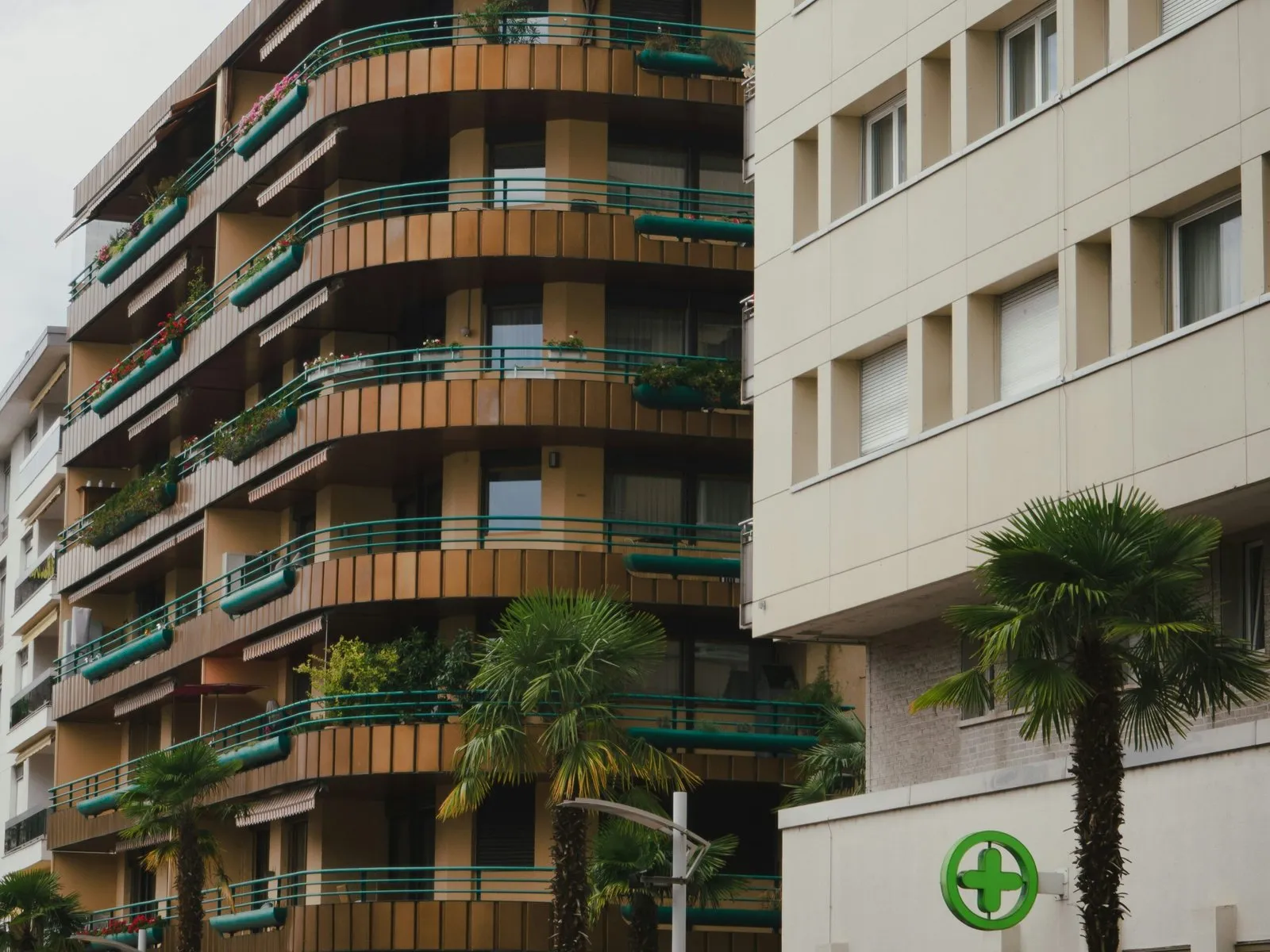Introduction
Estate planning laws in malta are intricate, combining civil law heritage with contemporary rules tailored for international clientele. understanding the intricacies of Maltese succession laws, the role of wills, and the implications of trusts and foundations is essential for anyone seeking to protect their legacy and ensure a smooth transfer of assets.
This guide provides a detailed overview of international estate planning in Malta, focusing on key aspects such as the legal requirements for wills, the management of estates, and the strategic use of trusts and foundations. It is indeed designed to offer practical guidance for individuals and families looking to navigate the complex legal landscape of estate planning in Malta, enuring that their wishes are respected, and their assets are preserved for future generations.
Understanding Estate Planning in Malta
Overview of the Maltese Legal Framework
Maltese estate planning is governed by Malta’s Civil Code (‘the Civil Code’), which provides a structured framework for wills, succession, and asset distribution. The Civil Code defines a will as a revocable document that allows individuals to dispose of their property upon death. Wills can be either public or secret, each with specific formalities to ensure validity.
Public wills are executed before a notary and two witnesses, while secret wills are deposited with the court. The Civil Code also establishes the reserved portion, which ensures that descendants and the surviving spouse receive a minimum share of the estate, thereby preventing total disinheritance.
Key aspects of the Maltese legal framework include:
- Wills: Public wills are notarised and registered, while secret wills are privately deposited with judicial assistance if needed.
- Reserved Portion: This guarantees descendants and the surviving spouse a minimum share, calculated based on the estate’s value and the number of children.
- Asset Preservation: The Civil Code allows for trusts and foundations, providing additional tools for asset protection and succession planning.
International considerations and Cross Border Aspects
Maltese estate planning has significant implications for expatriates and multinational business owners. The EU Succession Regulation (650/2012) applies,allowing individuals to choose the law of their nationality for estate distribution. This regulation simplifies cross-border estate management, especially for those with assets in multiple EU countries.
Key international considerations include:
- Cross-Border Assets: Individuals with assets in Malta and other EU countries can choose the applicable law, reducing legal complexities.
- Recognition of Foreign Wills: Maltese law recognises foreign wills that comply with the country of origin’s formalities, ensuring international estates are managed effectively.
- Tax Implications: Malta’s tax regime, which has no inheritance or estate taxes, makes it an attractive jurisdiction for international estate planning.
Get legal advice you can rely on.
Contact us today.
Wills and Disability Planning Documents in Malta
Formalities and Validity of Wills
Under Maltese law,wills may be either public or secret,and each type has its own specific formalities required for validity. Both categories of wills must strictly adhere to the legal requirements in the Civil Code to be enforceable.
Key points about will formalities include:
- Public Wills:
- Must be executed before a notary and two witnesses.
- The will has to be read aloud to the testator and witnesses prior to signing.
- After execution, the will must be registered in the Public Registry within a specified timeframe (typically 15 working days).
- Secret Wills:
- Must be signed by the testator if they have the ability to write. When the testator cannot sign, specific procedures involving a judge are necessary.
- The will is sealed and deposited with the Civil Court (voluntary Jurisdiction Section), keeping its contents private from the public and witnesses.
- capacity:
- The testator must generally be at least 16 years old. Though, restrictions apply until age 18 regarding immovable property.
- Mental capacity is required so the testator comprehends the nature and consequences of making a will.
- Individuals who have been formally interdicted for profound mental incapacity or prodigality are restricted from making valid wills.
- Revocation:
- A will can be revoked at any time prior to the testator’s death.
- Revocation might potentially be formal,by executing a subsequent will that expressly or implicitly revokes the original,or by intentionally destroying the existing will,so long as the intent to revoke is evident.
Powers of Attorney and Disability Documents
An enduring power of attorney (EPA) serves as a crucial disability planning document in Malta, empowering a person (the mandator) to designate another trusted person (the mandatary) to manage their personal welfare and/or property if they later lose mental capacity.This arrangement can prevent the need for a more restrictive,court-appointed curatorship.
Key aspects of EPAs include:
- Scope:
- The EPA may grant the mandatary broad authority over property (including bank accounts and real estate) and/or decisions about the mandator’s personal care and welfare,as detailed in the document.
- setup:
- it must be executed by public deed before a notary public and two witnesses.
- Registration of the EPA is required, and it is typically accompanied by a medical declaration confirming the mandator’s capacity at the time of setup and the arrangement’s service to their best interests.
- Activation and Termination:
- Generally, the EPA becomes effective when the mandator loses capacity.
- It can end if the mandator regains capacity, with this status change being formalised by a notarial act and medical confirmation.
- The mandator can also revoke the EPA while still retaining capacity.
- Protection and Accountability:
- The mandatary acts under strict fiduciary duties,a foundational principle of Maltese law for anyone managing another’s affairs.
- Mandataries are accountable for their conduct and are liable for damages due to negligence or fraud.
- Courts may intervene to enforce or amend the EPA’s terms to ensure the mandator’s best interests are protected.
estate Administration and Succession Rules in Malta
Administration procedures and Testamentary Executors
The administration of an estate in Malta does not follow a formal “probate” process as seen in some other jurisdictions. Rather, several key steps and roles define this process, with testamentary executors playing a central role. These executors are appointed by the testator in their will and require confirmation by the competent court (Court of Voluntary Jurisdiction) before they can formally act. The duties and powers of executors include:
- Inventorying Assets: Executors must prepare a detailed inventory of all assets comprising the deceased’s estate, ensuring a full accounting.
- Paying Debts and Legacies: Executors are responsible for settling outstanding debts from estate funds. This includes collecting sums owed to the estate and, if needed, selling estate property (movable or immovable), but typically only when necessary to pay debts or legacies.
- Distributing Assets: After debts and legacies are settled, executors distribute the remaining assets according to the will, which involves transferring property, making specific bequests, and ensuring all beneficiaries receive their appropriate shares.
- Accountability: Executors act in a fiduciary capacity and must render a detailed account of their administration upon completion. Their own property may even be hypothecated as security for the faithful execution of their duties.
If no executor has been appointed in the will,or if the executor is unable or unwilling to serve,execution of the will vests directly in the heirs. Alternatively, the court can appoint an executor either with the heirs’ consent (Court of Voluntary Jurisdiction) or upon the request of an interested party for just cause (Court of Contentious Jurisdiction), to ensure the estate’s proper administration in accordance with the law.
Intestate Succession and Forced Heirship Principles
When a person dies intestate (without a valid will), Maltese law mandates the distribution of the estate via the intestate succession rules set out in the Civil Code. These rules establish a hierarchy that generally prioritises:
- The deceased’s descendants and surviving spouse
- Ascendants (such as parents and grandparents)
- Collateral relatives (including siblings)
- The Goverment of Malta, if no other legal heirs are found
Maltese law also enshrines the principle of forced heirship, guaranteeing specific close relatives a legally reserved portion (riserva) of the estate. Major details include:
- Reserved Portions: Certain shares of the estate are reserved for the deceased’s children (or their descendants) and the surviving spouse, which cannot be overridden by a will.
- Children: If there are four children or fewer, they are collectively entitled to one-third (1/3) of the estate’s value, or one-half (1/2) if there are five or more children, with equal division among them.
- Surviving Spouse: The surviving spouse is entitled to one-fourth (1/4) of the estate’s value if there are children, or one-third (1/3) if there are none. Further, the spouse is always entitled to the right of habitation over the principal matrimonial home, furnished, if it was owned solely or jointly by the deceased.
- legal Protections: Reserved portions are strongly protected by law and are treated as a credit owed by the estate to the statutory heirs. The testator is not permitted to impose burdens or conditions on these reserved shares, ensuring that entitled heirs receive their statutory portion unencumbered by any conditions intended to dilute their rights.
Trusts and Foundations for Effective Estate Planning in Malta
Establishing and Managing Trusts
Trusts are a cornerstone of estate planning in Malta, providing a flexible and secure way to manage and transfer assets across generations or for specified purposes. According to the Trusts and Trustees Act, a trust is created when a settlor transfers property to a trustee, who holds and manages it under fiduciary obligations for the benefit of designated beneficiaries or a stated purpose. This legal arrangement establishes a clear distinction between legal ownership (with the trustee) and beneficial enjoyment (for the beneficiaries). Key aspects of establishing and managing a trust include:
- Types of Trusts:
Malta recognises a variety of trust structures, including fixed interest trusts-where beneficiaries’ entitlements are predetermined-and discretionary trusts, which give trustees significant flexibility in distributing income and capital among a class of beneficiaries in accordance with their needs or the guidance provided in the trust deed.
- Tax Efficiency:
Trusts in malta may offer tax advantages, particularly in international scenarios. Proper tax advice is essential, as certain transfer taxes might be reduced or avoided depending on the residency of the parties and the location of the assets.
- Duration:
Trusts established under Maltese law can generally last for up to 125 years, supporting long-term asset protection, management, and dynastic planning.
- registration:
Generally, there is no requirement to register the trust itself in Malta.Though, trustees-especially professional ones-are regulated, and beneficial ownership information may need to be maintained and reported for anti-money laundering purposes, subject to EU regulations.
distinction and Benefits of Foundations
Foundations represent another robust estate planning vehicle in Malta,often contrasted with trusts due to their separate legal personality. A foundation is established through a public deed during the founder’s lifetime or by the founder’s last will, with both methods requiring registration with a notary public. The founder must make an initial endowment of property or funds to create the foundation. Key points that distinguish foundations and highlight their benefits include:
- Legal Personality:
Foundations are registered legal entities (in the Register for Legal Persons), unlike trusts. They are capable of entering into contracts, directly owning assets, and even carrying on activities or businesses within defined limits.
- Administrative Roles:
Foundations are managed by administrators, who must meet fiduciary duties similar to those of trustees. Administrators oversee the foundation’s assets and work to achieve its objectives in accordance with the foundation’s statute.
- Tax Treatment:
Generally, foundations are taxed in a manner similar to companies in Malta. However, specific exemptions or favourable treatment may apply, especially for foundations established for charitable or social welfare purposes.
- Duration and Flexibility:
Private foundations usually have a maximum duration of 100 years (contrasted with 125 years for trusts), with exceptions for certain types such as securitisation foundations. structures with segregated cells are possible, enabling a foundation to maintain distinct asset pools for dedicated beneficiaries or objectives.
- Conversion:
Maltese law allows for the unique flexibility to convert a trust into a foundation and vice-versa, adapting the structure as circumstances evolve.
Speak to a Lawyer Today.
We respond within 24 hours.
Conclusion
International estate planning in malta is a complex yet crucial process that offers numerous benefits for high net worth individuals and expatriates. The legal framework, governed by the Civil Code, provides a structured approach to wills, trusts, foundations, and succession laws, ensuring that assets are protected and distributed according to the testator’s wishes. Key tools such as wills, powers of attorney, trusts, and foundations provide flexibility and security, allowing individuals to manage their assets effectively and ensure their legacy endures.
For those considering estate planning in Malta, seeking professional legal advice is essential. The expertise of estate planning lawyers can guide you through the intricate legal landscape, ensuring compliance with Maltese law and optimising your estate plan.contact PBL Legal now to explore how we can assist you in securing your legacy with tailored solutions.
Frequently Asked Questions
![]()







